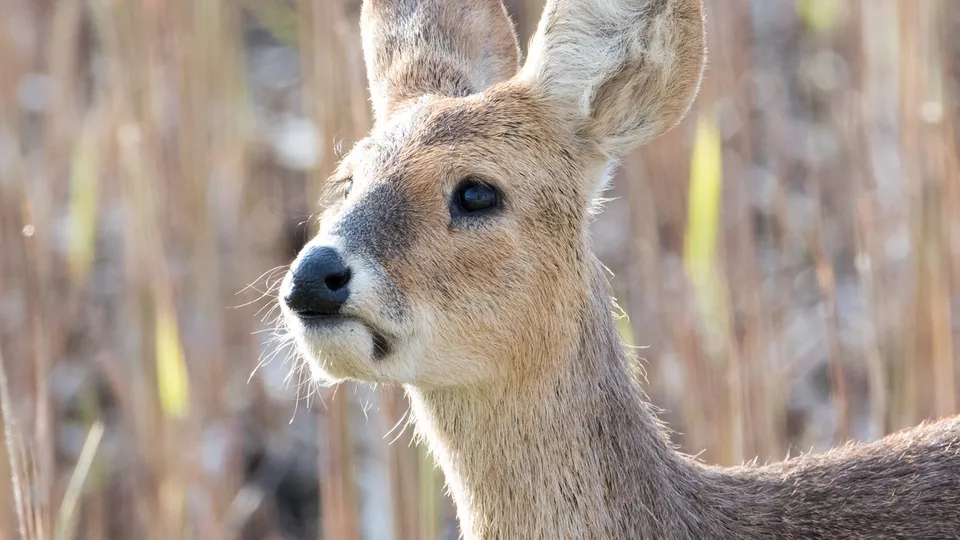
Chinese water deer
Chinese water deer are easily distinguished from other deer by their strange teddy bear like appearance and the huge canine tusks displayed by the stags.

Chinese water deer are easily distinguished from other deer by their strange teddy bear like appearance and the huge canine tusks displayed by the stags.
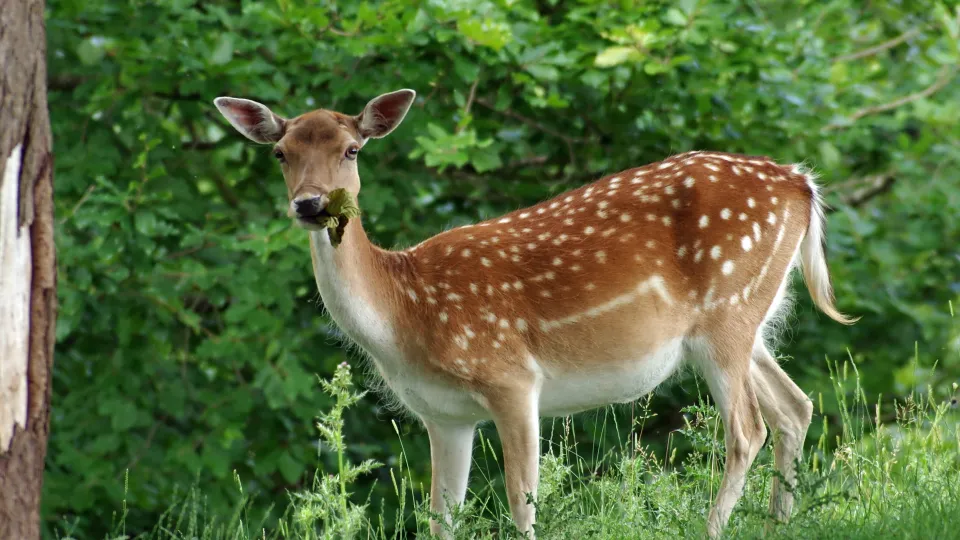
Although introduced by the Normans, the fallow deer has been here so long that it is considered naturalised. Look out for groups of white-spotted deer in woodland glades.
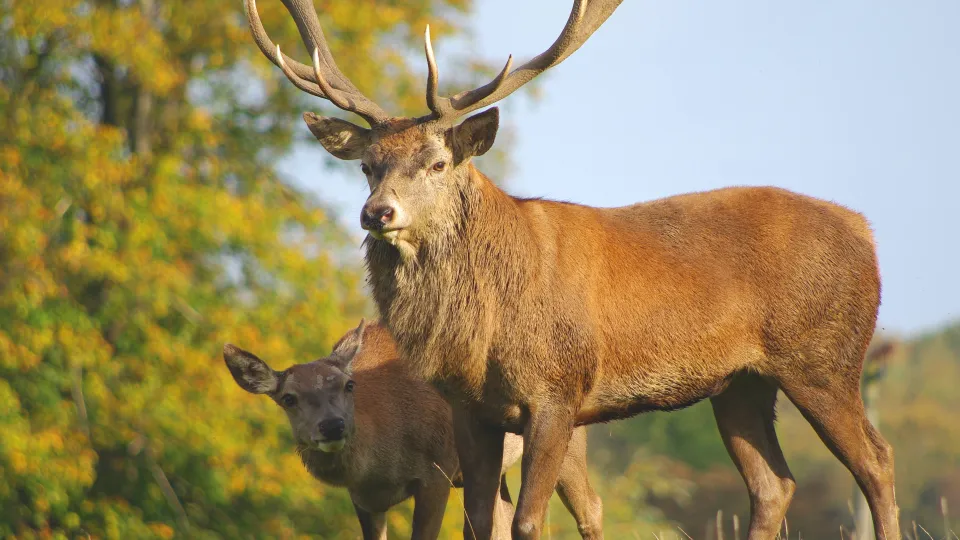
Standing proud and tall, the red deer is our largest deer. With its massive antlers, it is an unmistakeable icon of the Scottish Highlands, but can be seen in northwest and southern England, too.
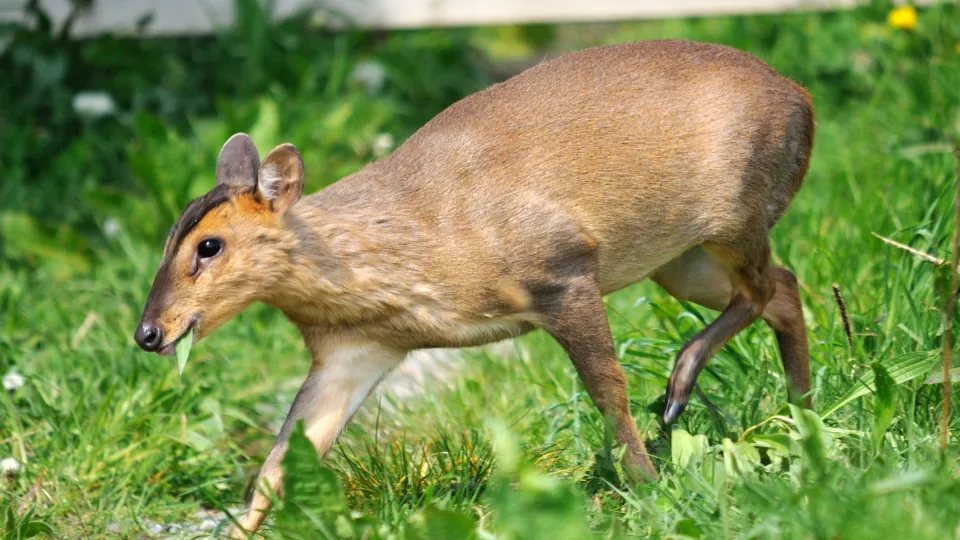
The muntjac deer was introduced into the UK from China in the 20th century. It has gained a stronghold in southeast England, where it can cause damage to our woods through browsing.
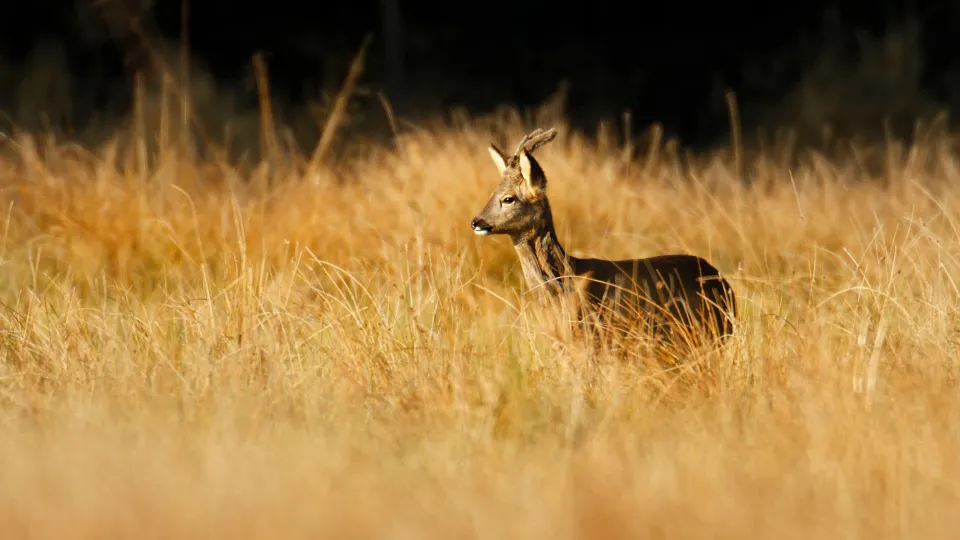
The attractive roe deer is native to the UK and widespread across woodland, farmland, grassland and heathland habitats. Look for its distinctive pale rump and short antlers.
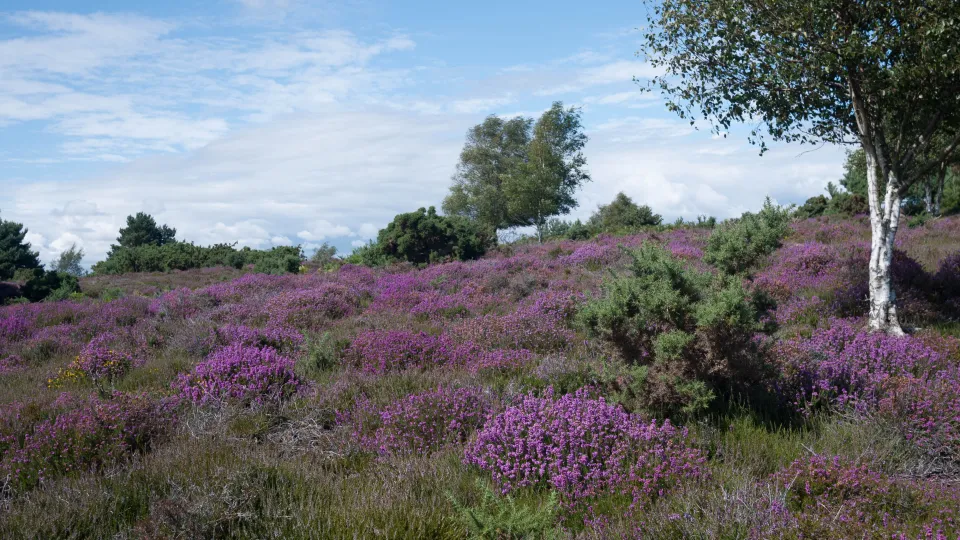
Heathlands form some of the wildest landscapes in the lowlands, where agriculture and development jostle for space, containing and limiting natural processes. Once considered as waste land of little value, lowland heathland is now appreciated and protected for its unique wildlife and austere beauty.
These wild, open landscapes stretch over large areas and are most often found in uplands. Although slow to awaken in spring, by late summer heathland can be an eye-catching purple haze of heather.